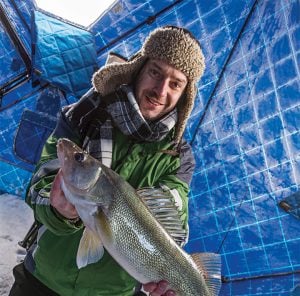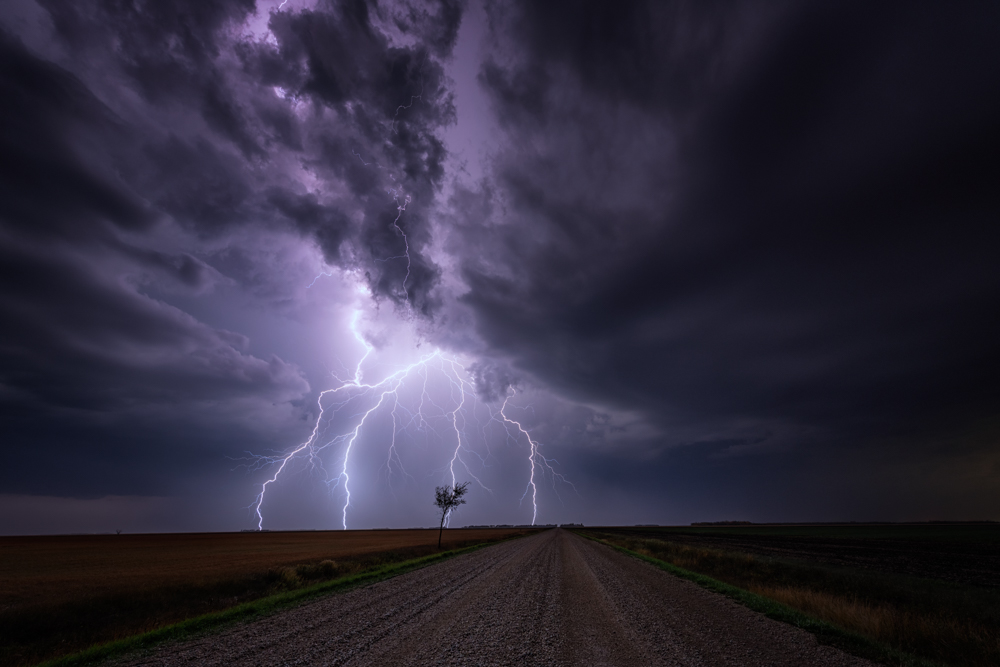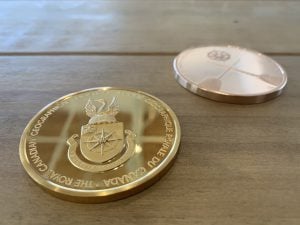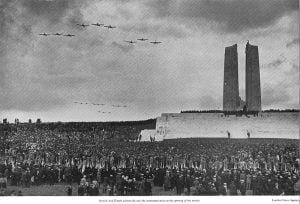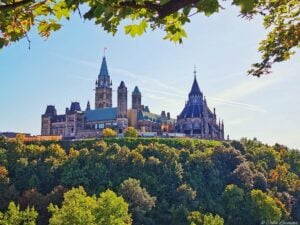Last week, I shared a selection of my favourite stats and feats) from my new book Canadian Geographic Biggest and Best of Canada: 1000 Facts & Figures (in stores now!). If you enjoy trivia, particularly Canadian trivia, or have a particular fascination with Canadian facts and accomplishments, you’ll surely enjoy my book. In the hopes of further capturing your interest, over the coming weeks I’m sharing a top-10 selection of items from each category that particularly stood out for me. This week: weather.
1. As far as countries go, Canada is pretty much the coolest — literally. It vies with Russia for first place as the coldest nation in the world, with an average daily annual temperature of —5.6ºC.
2. Brrr. The lowest temperature ever recorded in Canada and North America? The village of Snag, Yukon, registered —63ºC on February 3, 1947.
3. Canada is deadly cold. More Canadians die each year from exposure to extreme cold temperatures than from other natural events, according to Statistics Canada. An average of 108 people die annually from the cold, while only 17 succumb to other nature-related events.
4. Get the shovel, er, shovels! The greatest single-day snowfall recorded in Canada was February 11, 1999, when Tahtsa, British Columbia, was blanketed with nearly a metre and a half of the white stuff (145 cm, to be exact). That broke a record of 118.1 cm of snow that fell on Lakelse Lake, British Columbia, on January 17, 1974. Neither is near the world record of 192 cm, set at Silver Lake, Colorado, on April 15, 1921.
5. Canada’s coldest city? A tie between Saskatoon and Regina, with —50ºC recorded on February 1, 1893, and January 1, 1885, respectively. The most recent sub —40ºC temperature recorded in a Canadian city? Sherbrooke, Quebec, at —41.2ºC on January 15, 2004.
6. As most Canadians know and have experienced, this country can deliver a wide range of temperatures, from cold winter nights to hot summer days. Interestingly, among Canada’s large cities, Regina lays claim to both the country’s lowest recorded temperature (see previous) and its highest. The city sweltered at 43.3ºC on July 5, 1937. Likewise, Winnipeg and Saskatoon, both holding cold-weather records themselves, also posted some of the highest recorded temperatures for large Canadian cities; they tied for second place at 40.6°C (Winnipeg on August 7, 1949 and Saskatoon on June 5, 1988).
7. There’s a saying in Canada that if you don’t like the weather, wait five minutes. Never could that have been more true than in Pincher Creek, Alberta, where Canada’s most extreme temperature change was recorded. The mercury soared from —19ºC to 22ºC in just one hour.
8. The Grand Banks off Newfoundland is considered the foggiest place in the world. The area experiences 40 per cent fog cover in the winter and up to 84 per cent in the summer.
9. This was one seriously big wave! On September, 11, 1995, the QE2 ocean liner was caught in Hurricane Luis off the coast of Newfoundland and was hit by a 30 m wave. This is the largest wave height ever recorded. The storm was also gigantic: it covered almost the entire north Atlantic.
10. For a nation that’s undoubtedly well known for its cool climate, it seems somewhat surprising that Canadians invented the UV Index, a measure of the intensity of the sun’s ultraviolet radiation in the sunburn spectrum. As UV increases, the sun’s rays can do more damage to skin, eyes and the immune system. In 1992, scientists at Environment Canada developed the index as a health protection tool for Canadians, and it is now forecast for 48 locations across the country.

